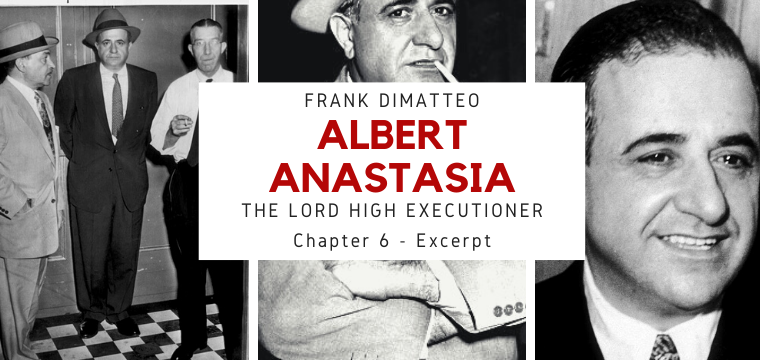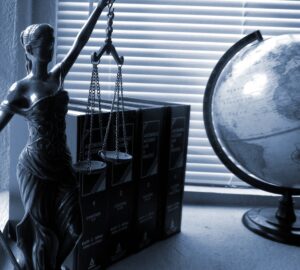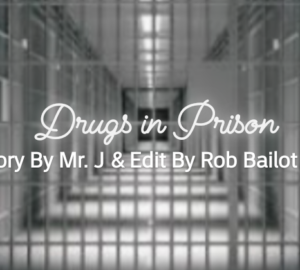Below is an excerpt from the latest Frank DiMatteo book, LORD HIGH EXECUTIONER. The excerpt from Chapter 6 delves into the hit on Joe The Boss…
EARLY IN ANASTASIA’S CAREER, the boss of his crew was Joe Masseria. But Albert knew and became intensely devoted to Frank Costello and Lucky Luciano. Luciano in particular. Luciano was technically on Masseria’s side, but Luciano’s insatiable hunger for power meant he looked out only for himself, and as soon as he thought he could get away with it, Luciano ordered that Masseria betaken out of the picture—permanently.
Anastasia conspired with Luciano to kill anyone who might challenge Luciano’s plan to rule the universe. First and foremost among those guys was Masseria, and Anastasia was a part of the Coney Island quartet assigned to shuffle Joe the Boss from his mortal coil. It was April 15, 1931, and the place was Gerardo Scarpato’s Nuova Villa Tammaro in Coney Island, on West 15th Street, the current site of Banner Smoked Fish seafood market.
Masseria’s reign as kingpin was challenged during the 1920s by an influx of Castellammarese. Sal Maranzano headed up the new crew. Both Masseria and Maranzano wanted to be capo di tutti capo. Sal was different from the uneducated thugs he was competing with. He’d been to college, spent years training to be a priest. He was a cool, calm, and clear thinker—and a visionary of sorts. He saw a world in which the various factions worked together rather than warring amongst themselves, thus increasing syndicate power ten-fold.
Masseria could have cared less about Maranzano’s Big Picture. Masseria had a Big Picture of his own, one in which New York City was all his, and he shared it with no one. Joe the Boss was kingpin in New York City starting in 1920 with prohibition, and he had a bloodline and resume suitable for the job. He came from Sicily and made his bones with Lupo the Wolf of the Black Hand. The Wolf terrorized the Italian section of Harlem from 1890 to 1920. When it was finally busted, the Wolf’s stable on East 107th Street contained no horses, but it did contain sixty stiffs, many of them hung on meat hooks. The Wolf’s mistake was broadening his horizons instead of sticking with what he knew best—exterminating. Lupo went into counterfeiting and got caught. Masseria took over the operation and set up a system of tribute for all of Harlem. If you wanted to make your own wine or booze, Masseria would make sure cops didn’t bust your stills and kegs—for a price. If you didn’t pay, the Law would find and bust up your still within hours, like magic. If not the Law, then Masseria’s boys would bust up your head.
The Masseria/Maranzano war raged for two years, lots of guys juked on both sides. The young rebels of those early days thought that the early bosses were stuffed shirts—Mustache Petes, they called them—and looked at them with disdain. Guys like Albert Anastasia, Lucky Luciano, and Vito Genovese thought the old bosses were exchanging raw earning potential for dignity and respect. The notion of presenting Italian men as refined gentlemen was abhorrent to guys whose hands were still calloused from swinging a hook. “Fuck dignity. Give me money every time,” Albert would say, rubbing the rough tips of his thick fingers together. Bugsy Siegel, Meyer Lansky, and Lucky Luciano had a clandestine meeting with Salvatore Maranzano in the Bronx Zoo. There, while feeding peanuts to the elephants, they came up with a way to end the war: Joe had to go.
It wouldn’t be the first time that someone tried to kill Joe the Boss. Umberto Valenti made the first attempt. And happily. He hated Masseria’s guys with the intensity of vendetta. Valenti sent thugs to squib Joe as he was leaving his apartment on Second Avenue, on the lower east side of Manhattan. Joe was outside on the sidewalk when he saw the attack coming and ducked into a millinery shop.
Rat-tat-tat-tat, the goons opened up on the shop, shattering storefront windows. The shooters were long gone before anyone dared move. Joe the Boss was pleased to find that he was uninjured. The only damage was a pair of holes in his straw hat. Trying to kill Masseria and failing turned out to be Valenti’s fatal mistake, as he himself went down soon thereafter in a hail of bullets right after Masseria and he shared a meal in a restaurant on East 12th Street in what we today call New York’s East Village. After eating themselves groggy Masseria and Valenti walked down the street arm in arm, right up until the moment Joe the Boss pulled away and all hell broke loose.
Masseria had some big names at his back: William “Willie” Moretti, Gambino, Anastasia, Costello, Adonis, and Genovese. (Adonis was born in Italy as Giuseppe Doto, but changed his name to Adonis because when he looked in the mirror, he didn’t see the average attractiveness everyone else saw, and thought he looked like a Greek god.
Maranzano had some future superstars in his squad, too: Bonanno, Luchese, Profaci, Gagliano, and Magliocco. However, Masseria and Maranzano were equally blind when it came to the beliefs and behavior patterns of those they felt were true blue and subservient. The young turks on both sides were more interested in their own careers than in those of the Mustache Petes.
Lucky Luciano had a distinct advantage over everyone else as he was the guy with informants on both sides and made his personal decisions based on superior intelligence. Another advantage Luciano had was that he didn’t buy into the pedigree bullshit. One hood wasn’t better than another hood because he was pure Sicilian.
It was foolish thinking, and Luciano made a lot of money by signing bootlegging deals with non-Sicilians, guys like Meyer Lansky and Bugsy Siegel, earning where the Mustache Pete’s were too snobby to earn.
Luciano saw the most efficient pathway for himself to the top of the heap. First thing, he would have to take out Joe the Boss. Next he’d have to become “friends” with Maranzano, a more difficult and complicated task. At stake was control of what was still the most lucrative black market in the history of mankind: booze.
So Luciano asked Joe the Boss to join him for lunch on Coney Island. As Joe arrived smacking his lips, Albert Anastasia sat in acute anticipation in a large blue sedan around the corner on Stillwell Avenue. The car was crowded with some heavy-duty company: Bugsy Siegel, Vito Genovese, and Joe Adonis. Siegel had been donated to the effort by Meyer Lansky, who was only too eager to rid the New York mob of a Sicilian pureblood.
It was a little after noon. The owner of the joint, Gerardo Scarpato, greeted the men personally. Scarpato was one of the kings of Coney Island. In addition to the Villa Tammaro, he owned the Sea Side Inn on Surf Avenue.
Here’s the meat of the mystery: where were Joe the Boss’s bodyguards?
Look into it, best you can find is “mysteriously disappeared.”
Like JFK in Dealey Plaza, Joe the Boss was uniquely insecure at the moment of his demise. The food at Villa Tammaro was sumptuous. The men ate and ate. Masseria started the seemingly endless meal by ordering the squid, and Luciano the pork chops al finocchio. Both men ate spaghetti and drank Italian red wine. The feast lasted for three hours.
By the time the men were logy with gluttony and ordering espresso to sharpen things up, Albert was across the street. There were guys scattered around, keeping an eye on the restaurant entrance, back door, awaiting the signal. By now it was close to three o’clock.
Luciano patted himself on his belly, belched and left the table to go to the can. At that moment a blue sedan pulled up in front.
As soon as Masseria was alone at the table, four gunmen burst into the restaurant and aerated Joe the Boss. Sluggish from the food and wine, Joe danced, but not well enough. He couldn’t avoid the path of six bullets, at least one of which hit him in the back of the head and killed him instantly. Fourteen more slugs tore up the restaurant wall behind Masseria. Luciano came out of the rest room and took a seat, a gunpowder scent getting into his suit.
For the gunmen, it was no silky-smooth getaway. They ran out the side door, which emptied into an alley and bumped into one another as they turned toward the street. There were more collisions as they tried to all get at once into the awaiting car. The driver tried to pull away and stalled the car, so Bugsy slugged him. Everyone escaped anyway.
When police arrived at the restaurant, they found in Joe the Boss’s hand an Ace of Spades, a mob symbol for “ran out of luck.” Sitting alone was Lucky Luciano.
“I was in the bathroom when it happened,” he told the police. “By the time I came out, still wiping my hands, the gunmen were gone and Joe was dead.”
“What were you doing when the gunfire started?” a cop asked.
“I was at the urinal,” Lucky said.
“You were in there a long time.”
“I take a long leak.”
A few days later, Masseria was laid out in a $15,000 casket with silk cushions. Engraved on the lid were the words “Giuseppe Masseria.” At the funeral parlor you could hear crickets but no sobbing.
His widow didn’t even show up.
The papers referred to the slain Masseria as a “Harlem Overlord.” Forty detectives were put on the case. Captain Ray Honan headed the investigation, which involved a lot of head scratching and shoulder shrugging.
Cops had found an odd assortment of clues outside the crime scene, including four overcoats, and five handguns, two in an alley outside the caf. and three in an abandoned car a few blocks away.
Despite their cluelessness, the police in New York knew that this was a big hit with major implications. They conceded publicly that Masseria was an “underworld big shot.” Police Commissioner Edward P. Mulrooney faced the boys from the press and was peppered with eager questions.
“Is it true that Masseria was an enemy of Al Capone?”
“I haven’t heard that.”
“Did you know that several Chicago gunmen are known to be in Brooklyn and are supposed to have done the shooting?”
“No, I do not.”
“Have you learned any reason for the shooting?”
“No. But we have detectives making an extensive investigation.”
“What rackets was Masseria boss of?”
“Wine, fish, and beer—maybe others. He was a burglar, small time stuff until about 1920 when we believe he made a name for himself in the policy racket.”
Commissioner Mulrooney somewhat understated the matter. You couldn’t buy Italian food anywhere in the five boroughs without paying a sales tax to Joe the Boss. The day after the Masseria hit, New Jersey cops pulled over a car on the State Highway, and found behind the wheel thirty-one-year old Anthony Devers, who became increasingly hinky when he, first, gave a phony address in Jersey City, and, second, turned out to be driving a car that was registered to someone who lived on West 15th Street in Coney Island.
The Masseria hit proved to be a pivotal moment in mob history and ended the Castellammarese war. Masseria’s whacking helped to put into place the mob leadership that would remain for most of the rest of the century. But that didn’t mean there was no more cleaning up to do.
In addition to Luciano, there was another witness to the clipping of Masseria, and that was restaurateur Gerardo Scarpato, a man who couldn’t decide if he should shit or go blind—and apparently chose wrong. He was more than willing to keep his yap shut, but he knew there was no way he could unsee what he’d seen, no way he’d convince the hardheaded hoods that his lips were sealed. Scarpato’s predicament was tightened during the late summer of 1932 when he was busted for selling booze out of his restaurant. Scarpato was scheduled to go on trial on September 12 before Judge Grover M. Moscowitz, and fear was he’d cut a deal, his freedom in exchange for info regarding the hit on Joe the Boss. Scarpato never made it to the courthouse.
On Friday, September 9, Scarpato left his home without telling his wife where he was going. His stiff was found on Sunday afternoon September 11, strangled, stuffed in a burlap sack, and left in the trunk of a car parked in front of a house on Windsor Place near Prospect Park.
I CAN TELL YOU about Albert Anastasia having Arnold Schuster whacked, I got to tell you about the legendary Willie “The Actor” Sutton, greatest of the bank robbers. Sutton was raised in Hell’s Kitchen, and he was a Houdini when it came to getting out of prison. He cut his way out of Sing Sing, tunneled out of a Pennsylvania facility, climbed the wall at a third prison. His escapes were legendary. Plus, he was a brazen bank robber. He didn’t hurt anybody and was seen as a hero by most of the public.
On March 9, 1950, an on-the-lam Sutton knocked over the Manufacturer’s Trust on Queens Boulevard in Sunnyside, Queens, getting away with almost $70,000, which he lived off of in a home on Dean Street in Brooklyn. He grew a moustache and lived practically next door to the precinct house, but no one recognized him. Almost no one. Enter Arnold Schuster, annoyingly observant twenty-two-year-old Coast Guard vet, solid citizen, and squealer. Schuster was aboard an Uptown BMT train at Fourth Avenue and 45th Street in Brooklyn one day and looked at the guy across from him.
“Hey, that’s Willie Sutton,” Schuster said to himself.
When Sutton got off at Pacific Street, Schuster got off too, and he followed Sutton to a gas station at Bergen Street and Third Avenue. When he ran into a cop on the beat, he said, “You’re probably going to think I’m crazy but . . .”
- Are Your Assets in Danger if Your Spouse Gets Into a Car Accident During Your Divorce? - July 23, 2024
- Breaking Down The Costs: How Much Does Crime Scene Cleanup Cost? - July 10, 2024
- Can Weed Make You Angry? - July 3, 2024









